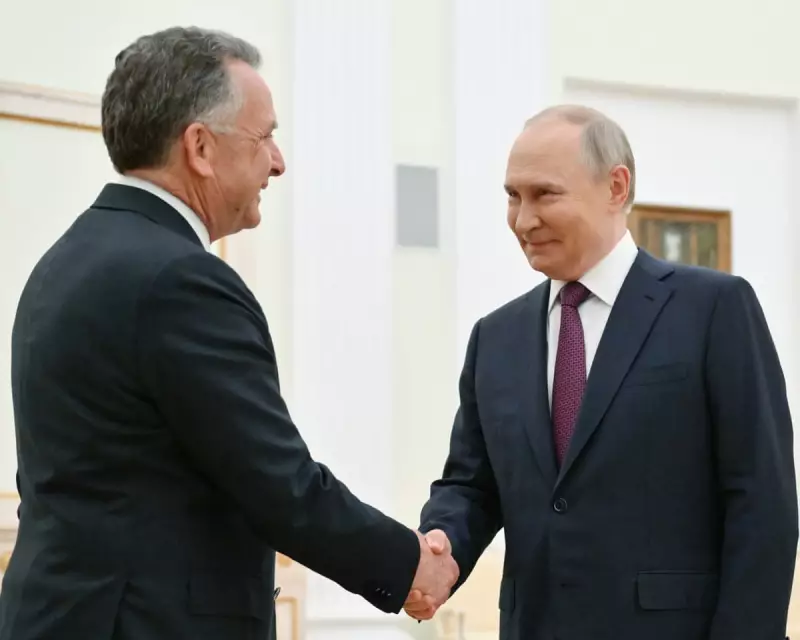
Former US President Donald Trump has declared his plan to end the war in Ukraine has been 'fine-tuned', initiating a fresh diplomatic push by dispatching a special envoy to Moscow and suggesting his son-in-law, Jared Kushner, could join the high-stakes talks.
Diplomatic Manoeuvres and Shifting Deadlines
Speaking to journalists aboard Air Force One, Trump confirmed that envoy Steve Witkoff is travelling to meet Russian President Vladimir Putin, potentially as soon as next week. He indicated that Jared Kushner, whom he described as a 'smart guy', might accompany Witkoff, though his participation was not yet certain.
In a significant shift, Trump also backed away from his previously stated Thursday deadline for Ukraine to agree to a US-backed peace plan. He stated, 'The deadline for me is when it’s over', signalling a more flexible timeline for negotiations.
Trump downplayed a contentious element of his proposal that would require Ukraine to cede territory to Russia, suggesting that Russian forces were likely to seize the land regardless. 'The way it’s going, if you look, it’s just moving in one direction,' he remarked. 'So eventually that’s land that over the next couple of months might be gotten by Russia anyway.'
Insights into the Negotiating Strategy and Global Reactions
New insights into the backchannel diplomacy emerged from a recording obtained by Bloomberg. It reveals that in a 14 October phone call, Witkoff advised Yuri Ushakov, a top foreign policy aide to Vladimir Putin, on how to best pitch a peace deal to Trump. Witkoff reportedly told Ushakov to congratulate Trump and frame discussions more optimistically.
Meanwhile, leaders of Britain, France, and Germany expressed support for Trump's efforts after a 'coalition of the willing' meeting. Keir Starmer, Emmanuel Macron, and Friedrich Merz emphasised that any solution must fully involve Ukraine, stating they were 'clear on the principle that borders must not be changed by force'.
On the ground, the conflict continued violently. Russian forces staged a mass drone attack on the southeastern Ukrainian city of Zaporizhzhia late on Tuesday, triggering fires and injuring 12 people. Regional governor Ivan Fedorov reported that the attack destroyed shops, damaged seven apartment blocks, and smashed numerous cars.
This assault followed a major missile and drone attack on Ukraine’s energy infrastructure in Kyiv 24 hours earlier, which killed seven and injured 21. In a concerning development, Nato jets were scrambled to track two Russian drones that crossed into Romanian airspace on Tuesday. One was later found downed in the Romanian village of Puieşti.
Broader Implications and Other Developments
As diplomatic efforts continued, a document signed by Vladimir Putin and published on Tuesday outlined a strategy to consolidate the Russian language and identity in parts of Ukraine incorporated since the 2022 invasion. The decree, entitled 'Strategy of Russia’s national policy in the period to 2036', calls for measures to ensure 95 percent of the country’s population identify as Russian by 2036.
In other international news related to the war, French authorities arrested three people on suspicion of spying for Russia and promoting its war propaganda. Separately, South African police are investigating allegations that a daughter of former president Jacob Zuma tricked men into fighting for Russia in Ukraine by telling them they were travelling for paramilitary training.
Trump has suggested he could eventually meet with both Putin and Ukrainian President Volodymyr Zelenskyy, but not until further progress has been made. He wrote on his Truth Social platform, 'I look forward to hopefully meeting with President Zelenskyy and President Putin soon, but ONLY when the deal to end this War is FINAL or, in its final stages.'





